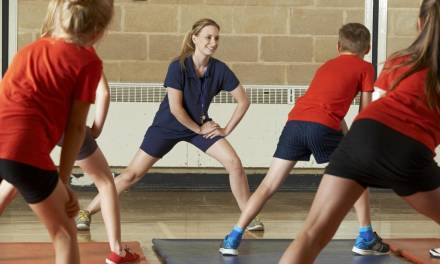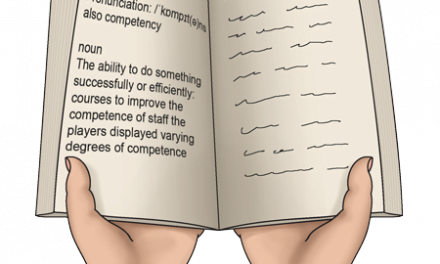Following a recent lesson observation, behaviour management was identified as a key strength of mine. More specifically, my ability to manage the behaviour of a number of ‘difficult’ Year 9 students in the classroom.
“You had them eating out of your hands! Some of the most difficult Year 9 students in the school, it was great to see!” were the comments I received from the Head of School.
This got me thinking – given the nature of PE teaching, I wonder if this is a common theme for PE teachers across the country? Is there anything that could be passed on to newly qualified PE teachers to support their development?
The nature of our subject requires strong behaviour management to ensure the health and safety of all students and to promote active participation in an open environment.
We have to be ‘on our toes’ from the moment our groups arrive to the moment they leave as anything is possible when moving from one space to another, along with supervising large numbers of students changing in small spaces. In short, we have to be ‘on it’!
A recent Twitter poll of 143 PE teachers (October 2017) found that 77% of those surveyed also had behaviour management identified as an area of specific strength following lesson observations. This did not surprise me. Nor did the feedback offered by a number of PE teachers who seem to share the same ‘secrets’ to behaviour management as me.
It is quite simple really:
Careful planning + consistency + positive relationships + enthusiasm = positive engagement and behaviour
This is probably the best way to explain the positive behaviour observed in my GCSE Theory lesson containing 32 girls of mixed ability and reading ages varying between 7 and 17 years.
As experienced PE Teacher @ImSporticus commented via Twitter: ‘People see the end product, but didn’t see what went in to it”, referring to the hard work and dedication that goes in to teachers preparing appropriately for positive behaviour management in their lessons.
So how can this prove useful to an NQT or trainee PE teacher just starting out on their journey? Let’s break it down:
Careful planning
Know your group and know the lesson content. Preparation is the key.
Seating plans considered and administered (if in classrooms) based on ability, or maybe avoiding friendship groups, support the foundations for a positive classroom learning environment.
If you get the planning right, roles and responsibilities can be assigned before the students have even entered the learning space, increasing student contributions to the lesson from the very start, and offering value and focus to their experience in the lesson.
They are therefore more likely to engage with the task which reduces opportunities for poor behaviour.
Consistency
Be consistent in your delivery methods, homework setting, maintenance of kit records, expectations of behaviour and presentation of work.
Young people crave consistency and will thrive in a fair and consistent learning environment. If you expect one way for students to respond to your teaching one week, make it that way every time.
Establish routines, such as setting homework on the same day every week which is due to be completed the same day the following week. This has proved extremely successful with very positive outcomes in my own personal experience. It becomes a pattern of habit and is embraced by even the most disorganised of students.
Positive relationships
Arguably the bedrock of any classroom management. Know your students and get to know their lives beyond your lesson, and even school.
Young people respect and appreciate adults taking the time to show an interest and learn something new about them, which always makes a great conversation starter or method of defusing a difficult situation.
Extra-curricular clubs are the perfect place to build on these relationships, whether that be leading a club or you going to visit them participating in a club from a different subject.
Taking these few minutes to show your support or interest can make a real difference and ultimately save you huge amounts of time attempting to win them over when challenging difficult behaviour in the future.
Enthusiasm
Believe in what you deliver and share that enthusiasm with your group. They will respond and go with you on the journey.
The energy you exude will be readily received and shared among the learning environment, making it a fun and more enjoyable experience for your students to feel motivated to learn.
In time, the process may ultimately seem effortless when behaviour management is observed to have gone well with a difficult group.
If you put in the time to develop these four main areas, the rest will follow and you will soon find your lessons flowing naturally without barely any consideration for behaviour management. The consistency in your approach makes it look easy.
Clearly this structure does not simply apply to PE teachers. If this approach is adopted by teachers of any subject then they too will experience the same positive outcomes on behaviour.
I am lucky enough to work with a large number of outstanding teachers from a range of different subject areas who have perfected the art of behaviour management by embracing these four main areas and going the extra mile by exploring the person behind the behaviour of their most challenging students.
From personal observations and experience, it is teachers who do not follow all four main areas that struggle and lose the control of their group or specific individuals in terms of behaviour in lessons.
Teachers who believe it is their role ‘to teach, not be their mates’ misunderstand the importance of building positive relationships with young people so completely miss the trick in creating positive behaviour management strategies with ‘difficult’ individuals or groups.
Teachers who believe ‘behaviour is the responsibility of others, not mine as a classroom teacher’ also struggle to embrace the four main areas and miss out on the rewards experienced by those who do.
As experienced PE teachers, we must continue to role model positive behaviour management through resilience and consistency in our approach, supporting those new to the profession, and even teachers from other subject areas, by guiding them on the journey towards positive behaviour outcomes which will ultimately lead to improved academic and health & wellbeing outcomes for all.
It may take time, but it will all be worth it in the end.
Rob has been a PE teacher for almost 10 years and has recently been appointed to the school leadership team at Flixton Girls School in Trafford as the Director of Culture & Ethos.










